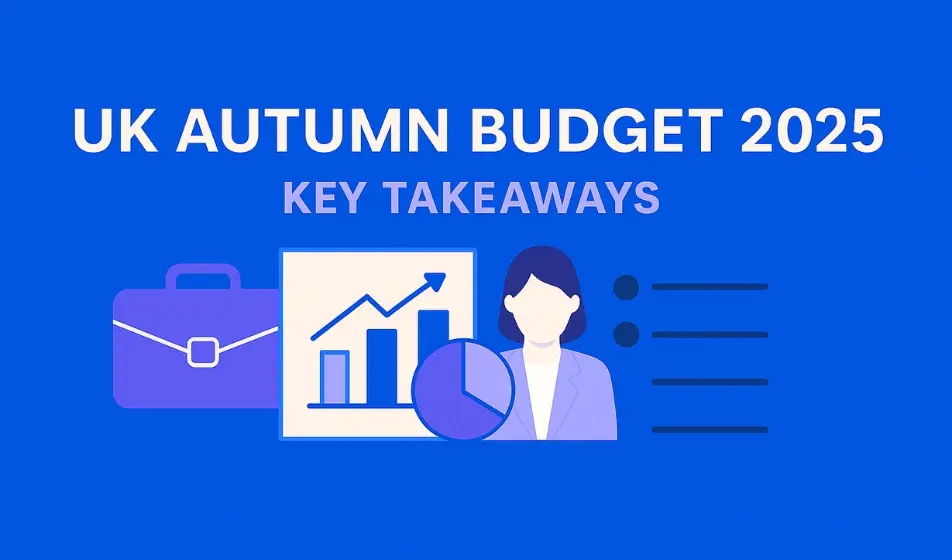UK employment law is on the cusp of major reform. From unfair dismissal rights to zero-hours contracts and harassment protections, the next few years will see managers and HR navigating some of the biggest shifts in workplace legislation for over a decade.
During our recent webinar, two Breathe Partners, legal expert Angie Crush (Head of Employment Law, Omny Group) and HR specialist Sandra Porter (MD, HR Dept Elmbridge) shared their expertise on what’s coming - and crucially, how managers can prepare.
Here’s a deep dive into the five headline changes, when they’re expected to come into force, and the practical takeaways you need to know.
1. Day-one right to unfair dismissal claims
When?
Expected in 2027.
What's changing?
Employees will gain the right to claim unfair dismissal from day one of employment. Currently, two years’ continuous service is required.
Why it matters:
This closes the “two-year window” many employers have relied on, putting far greater weight on probation reviews, onboarding, and dismissal processes.
Manager action points:
- Set clear expectations with new hires from day one.
- Hold regular check-ins throughout the probationary period (expected to be around 9 months).
HR action points:
“This change will give around nine million people additional protection,” said Angie. “Managers need to be crystal clear on expectations from the very start.”
Sandra echoed the need for reflection:
“If you’re worried about losing that two-year window, ask yourself why. Is it a hiring issue? Are managers moving too quickly to dismissal? Recruitment and onboarding processes are where prevention starts.”
2. Zero-hours contracts and guaranteed hours
When?
Planned for 2027.
What's changing?
- After 12 weeks’ continuous work, employers must offer a guaranteed hours contract.
- Zero-hours contracts can still exist, but one-sided flexibility will be curbed.
- Workers will also gain rights to reasonable notice of shifts and payments for late cancellations.
Why it matters:
This limits employers’ ability to rely indefinitely on casual labour and demands better planning.
Manager action points:
- Give team members as much notice of shifts as possible.
- Keep communication consistent and fair when allocating hours.
- Flag workload patterns early to HR for contract adjustments.
HR action points:
- Track hours worked to identify when guaranteed hours apply.
- Run scenario planning to assess the business impact of contract changes.
- Explore scheduling and time-tracking software to stay compliant.
“The government isn’t abolishing zero-hours contracts — just the abuse of them,” Angie explained. “Employers will have to offer guaranteed hours that reflect actual working patterns.”
Sandra highlighted the operational challenge:
“For businesses that rely heavily on casual staff, the admin burden is huge. Tracking hours and allocating shifts fairly may require new systems or software.”
3. Statutory sick pay (SSP) from day one
When?
From April 2026.
What's changing?
- SSP will be payable from day one of absence (currently day four).
- The lower earnings threshold is being removed.
Why it matters:
This widens access and protects vulnerable workers, but costs and absence rates are likely to rise.
Manager action points:
- Hold open, supportive sickness conversations.
- Conduct return-to-work interviews consistently.
- Monitor absence patterns in your team and escalate concerns.
HR action points:
“Without the three-day waiting period, short-term absences are likely to increase. Managers need the skills to handle sickness calls and follow-up conversations with confidence,” Sandra advises.
4. Stronger protections against harassment and discrimination
When?
Most provisions expected by October 2026.
What's changing?
- Employers must take all reasonable steps (not just “reasonable steps”) to prevent harassment.
- Liability will extend to harassment by third parties (clients, customers, contractors).
- Restrictions will be placed on using NDAs in harassment or discrimination cases.
Why it matters:
The bar for compliance has been raised - evidence of proactive prevention is now essential.
Manager action points:
- Model zero tolerance for inappropriate behaviour.
- Intervene promptly if issues arise.
- Encourage team members to use reporting channels if they feel unsafe.
HR action points:
- Deliver regular harassment awareness training (not one-offs).
- Conduct risk assessments for events, travel, and client sites.
- Establish and monitor clear reporting processes.
- Keep detailed records of training, reports, and actions taken.
“Employers must show they took all reasonable steps to prevent harassment - not just some,” said Angie. “That’s a very high bar.”
Sandra stresses the practical side:
“If a complaint landed on your desk tomorrow, what could you prove? Training two years ago isn’t enough. This has to be continual, and the audit trail is everything.”
5. Flexible and hybrid working rights
When?
Expected in 2027.
What's changing?
- Employees already have the right to request flexible working from day one.
- The new law introduces a reasonableness test: not only must the process be fair, but the decision itself must also be reasonable.
Why it matters:
Expect more requests - and more scrutiny if refusals aren’t backed by solid evidence.
Manager action points:
- Consider each request on its merits and avoid blanket refusals.
- Document decisions and discussions with employees.
- Be open to exploring alternatives (e.g. partial flexibility).
HR action points:
- Update policies and request forms.
- Train managers on what constitutes a reasonable refusal.
- Align leadership on the business rationale for core office hours or hybrid models.
Sandra adds: “This isn’t just about saying yes or no. It’s about demonstrating you’ve considered the request properly, explored alternatives, and documented your decision-making.”
Final takeaway
The Employment Rights Bill signals a cultural shift: more protections for employees, and more accountability for employers. Preparing now will reduce risk, strengthen compliance, and build trust across your teams.
Manager priorities
- Set clear expectations during onboarding and probation.
- Hold regular check-ins and document performance from day one.
- Manage sickness conversations sensitively but consistently.
- Respond promptly to flexible working requests and explore alternatives.
- Lead by example: model zero tolerance for harassment and create a safe space for employees to speak up.
HR priorities
- Audit and update contracts, handbooks, and policies.
- Refresh absence management and harassment prevention frameworks.
- Track hours and absence with robust systems to stay compliant.
- Deliver ongoing training for managers on probation reviews, absence handling, flexible working, and harassment.
- Strengthen reporting channels and keep meticulous audit trails.
FAQs
Q: When will the new employment law changes take effect?
Most changes are expected between 2026 and 2027. For example, statutory sick pay reforms start in April 2026, harassment protections are due by October 2026, and unfair dismissal and zero-hours contract reforms are anticipated in 2027.
Q: What is the biggest change for managers?
The introduction of day-one unfair dismissal rights is one of the most significant shifts. It removes the current two-year buffer, meaning managers must focus on onboarding, probation, and performance management from day one.
Q: Are zero-hours contracts being banned?
No. Zero-hours contracts will still exist, but after 12 weeks of continuous work, employers must offer a contract reflecting actual hours worked. Workers will also gain protections around notice periods and cancellations.
Q: How will statutory sick pay change?
From April 2026, SSP will be payable from the first day of sickness (instead of day four). The lower earnings threshold will also be scrapped, widening access but increasing potential costs for employers.
Q: What should managers do to prepare now?
-
Strengthen probation and onboarding processes.
-
Track hours and shift allocations more closely.
-
Refresh sickness and absence management processes.
-
Lead by example on harassment prevention.
-
Handle flexible working requests fairly and document decisions carefully.
Q: Do these changes affect small businesses?
Yes. The reforms apply across all employers. SMEs, in particular, should prepare early to reduce legal risks and avoid the costs of non-compliance.
Q: What’s the best first step for HR teams?
Audit contracts, policies, and handbooks now. Updating templates and ensuring managers are trained on upcoming changes will make compliance smoother when the new laws take effect.







.webp)


.webp)